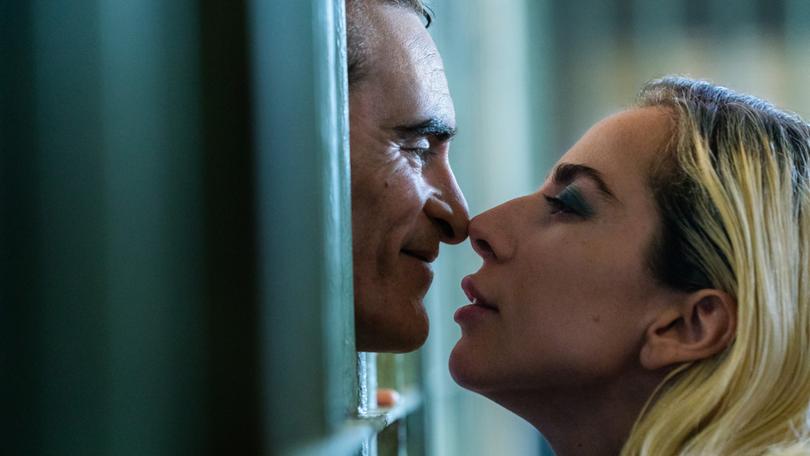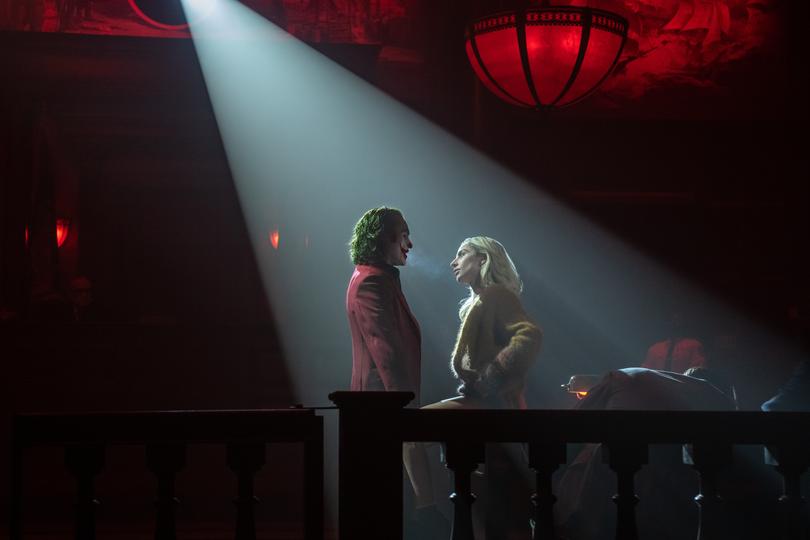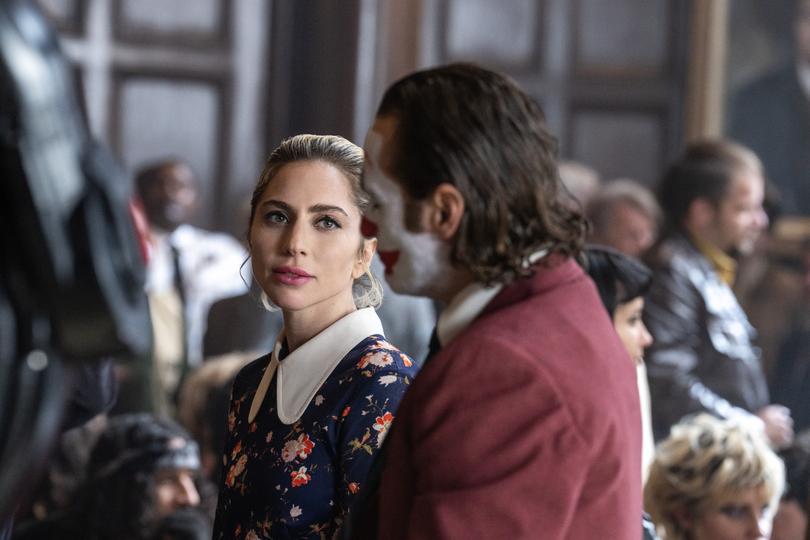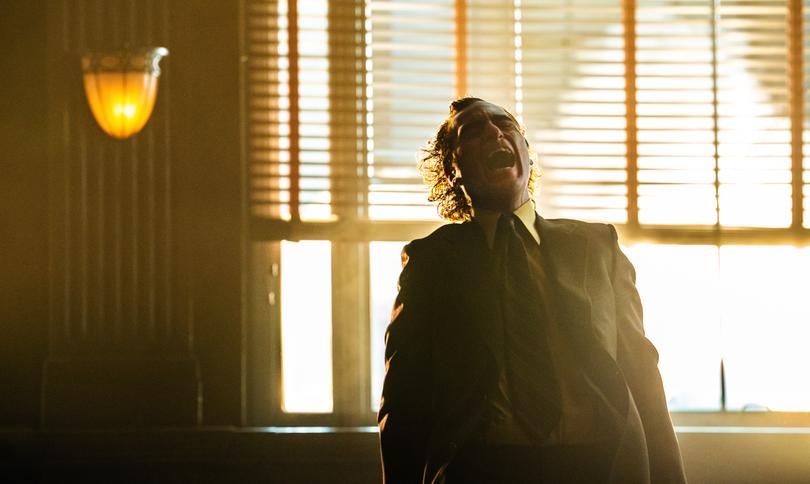Joker: Folie a Deux’s fundamental problem is Lady Gaga’s Harley Quinn
If you cast Lady Gaga in a supervillain blockbuster, maybe have someone else write the script. Filmmaker Todd Phillips has never written a convincing female character.

The prevailing wisdom is if you can get Lady Gaga for your movie, you do it. Better yet, if you can get Lady Gaga to sing in your movie, you do it.
Director Todd Phillips must’ve thought he had struck gold when he signed Gaga to the sequel to his 2019 commercially successful and nihilistic supervillain film Joker. But what you don’t do when you have Gaga on the call sheet is squander her bombshell screen presence.
Phillips and Joaquin Phoenix return with a sequel to a divisive film that won both Oscars and repulsed some audiences with its mean-spirited and violent story which attempted to sympathise with a murderous, aggrieved man turned folk hero to incels and toxic masculinity.
Sign up to The Nightly's newsletters.
Get the first look at the digital newspaper, curated daily stories and breaking headlines delivered to your inbox.
By continuing you agree to our Terms and Privacy Policy.While it was derivative, the 2019 film was a filmmaking achievement. It had bold visuals, an assured style and flashes of brilliance. You could be repelled by its pitch-black soul, but it at least looked good.
This sequel has the opposite problem. It’s not as grim and thematically offensive, but it falls on some fundamentals of filmmaking and craft.
For one thing, it’s far too long. Not just overall but in individual set-pieces and moments that drag and drag and drag. Will they please stop singing?

Yes, if you didn’t already know, Joker: Folie a Deux is a musical. Arthur Fleck/Joker (Phoenix) has been in prison for the five murders he committed in the previous film and while awaiting sentencing, he’s subjected to the misery and cruel guards (including Brendan Gleeson in a thankless role) of Arkham.
He also meets Harleen “Lee” Quinzel/Harley Quinn, a patient in the minimum security wing where they have sing-along sessions. She catches Arthur’s eye and they are immediately entranced with each other and escape into fantasy worlds that resemble old-school Hollywood musicals.
Gaga is a magnetic force on screen and Phoenix, if you remember, played Johnny Cash in Walk the Line so is more than capable of belting out a tune.
There, Phillips favour covers of “That’s Entertainment” from the 1953 musical The Band Wagon and Burt Bacharach’s “What the World Needs Now”. Except for one sequence that evokes a Dusty Springfield-esque performance, the staging and arrangements for the musical bits are samey and exhausting.
We’re likely in his head and not hers every time there’s a musical interlude and that speaks to the core problem with Joker: Folie a Deux. Gaga’s Lee character has no interiority. We are given the broad strokes of the who (a rich girl who is fixated on Joker and the chaos he brought) but never the why.

The character remains frustratingly opaque which makes it very difficult to connect with her and a little baffling as to why Arthur does. Arthur reveals something of what’s going on with him when he sings but she never does.
Why cast Gaga and have her do almost nothing? She also feels superfluous to the film, and if you thought about it, Arthur’s character arc still would’ve ended where it did without her. The more consequential character is former co-worker Gary Puddles (Leigh Gill) who appears during Arthur’s murder trial.
Lee, then, is barely a functionary, the devil on his shoulder trying to convince him his “real” self is Joker, while Arthur’s lawyer (Catherine Keener) who is mounting a mental illness defence tries to persuade him that Joker is a split personality he created to combat his trauma.
Phillips has never managed to write a plausible female character. Why start now?
He also makes many textual references to Arthur’s shadow self and fragmented personalities, asking the question, will the real Slim Shady please stand up? This will be made clear because Phillips has never been one for nuance or ambiguity.

Take, for example, his repeated use of “That’s Entertainment” as a motif throughout. It’s as if the film is trying to tell us to beware of distracting spectacles but Phillips’ films don’t have the intellectual heft to make a coherent argument.
There’s a line from The Usual Suspects in which Keyser Soze said, “The greatest trick the devil ever pulled was to convince the world he didn’t exist”. The greatest trick Phillips ever pulled was to convince some people that his movies have depth or insight into the human condition.
Joker: Folie a Deux (the subtitle translates as a case of shared madness) is not as nasty as its predecessor. For one thing, Arthur is a far more compelling character than the violent sad sack of the first film, they more empathetic and deserving of compassion.
But when there are this many structural, story and character issues, it cancels out any gains.
Rating: 2/5
Joker: Folie a Deux is in cinemas now

